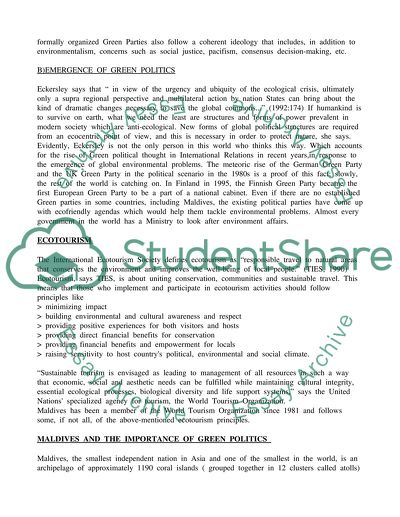Cite this document
(Maldives Government Policy on Ecotourism and Green Policy Essay, n.d.)
Maldives Government Policy on Ecotourism and Green Policy Essay. https://studentshare.org/tourism/1549218-comparative-politics
Maldives Government Policy on Ecotourism and Green Policy Essay. https://studentshare.org/tourism/1549218-comparative-politics
(Maldives Government Policy on Ecotourism and Green Policy Essay)
Maldives Government Policy on Ecotourism and Green Policy Essay. https://studentshare.org/tourism/1549218-comparative-politics.
Maldives Government Policy on Ecotourism and Green Policy Essay. https://studentshare.org/tourism/1549218-comparative-politics.
“Maldives Government Policy on Ecotourism and Green Policy Essay”. https://studentshare.org/tourism/1549218-comparative-politics.


